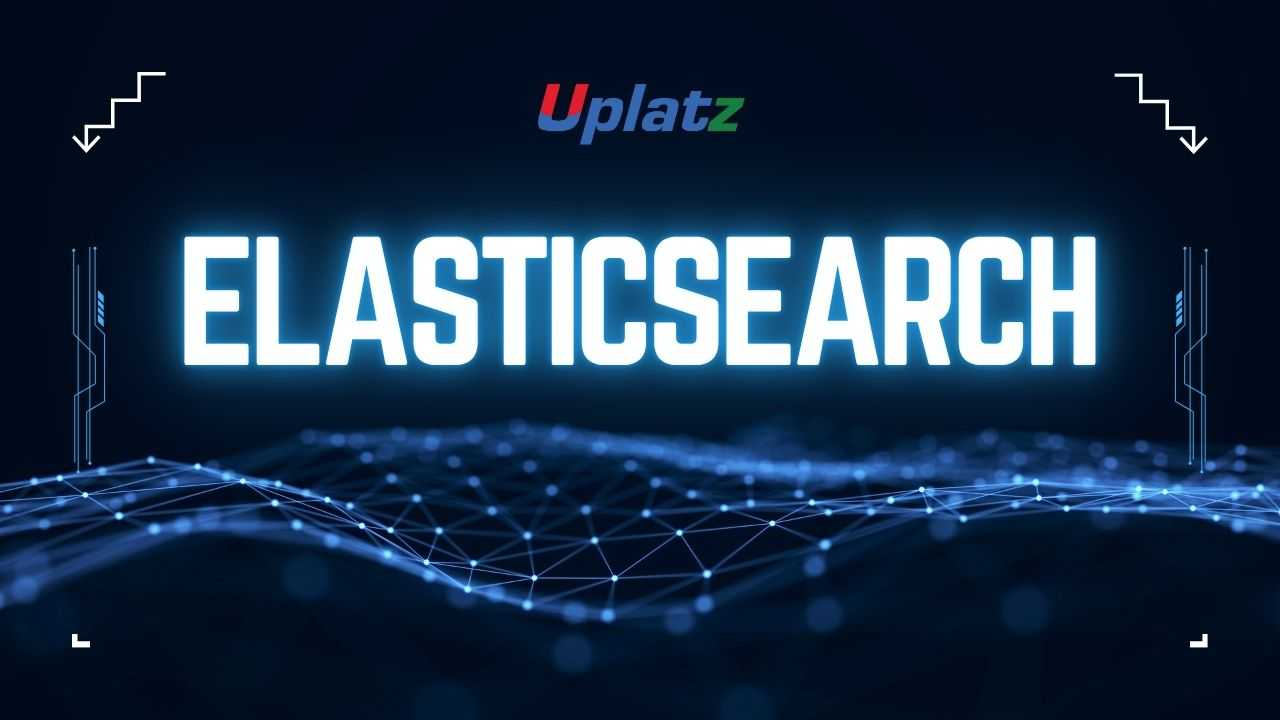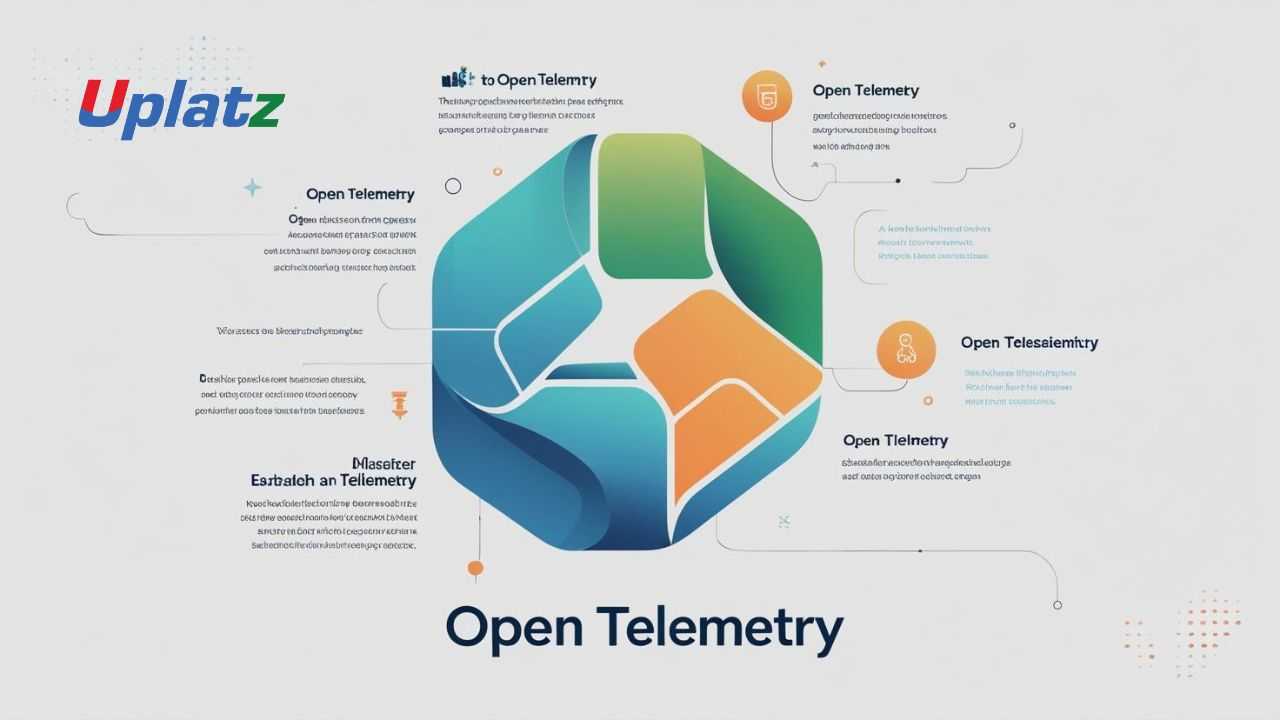Fluentd
Master Fluentd to collect, unify, and route logs and data streams across distributed systems. Price Match Guarantee
Full Lifetime Access
Access on any Device
Technical Support
Secure Checkout
Course Completion Certificate
Price Match Guarantee
Full Lifetime Access
Access on any Device
Technical Support
Secure Checkout
Course Completion Certificate
 97% Started a new career
BUY THIS COURSE (
97% Started a new career
BUY THIS COURSE (GBP 12 GBP 29 )-
 86% Got a pay increase and promotion
86% Got a pay increase and promotion
Students also bought -
-

- Elasticsearch
- 10 Hours
- GBP 12
- 10 Learners
-

- Prometheus
- 10 Hours
- GBP 12
- 10 Learners
-

- OpenTelemetry
- 10 Hours
- GBP 12
- 10 Learners

Fluentd is a powerful open-source data collector designed to unify log and event collection across distributed systems, containers, and cloud platforms. It simplifies the process of collecting, filtering, buffering, and routing data to various destinations such as Elasticsearch, Kafka, Amazon S3, Google Cloud Logging, and Azure Monitor.
Built for scalability and flexibility, Fluentd acts as the backbone of modern observability and monitoring stacks, working seamlessly with tools like Elasticsearch, Kibana, Prometheus, and Grafana. It provides a pluggable architecture with over 500 plugins, making it the industry’s go-to solution for centralized logging and event-driven data processing.
This Mastering Fluentd Course by Uplatz offers a complete, hands-on learning journey covering Fluentd’s core concepts, configuration, and integrations. By the end of this course, you’ll be able to design, deploy, and manage Fluentd-based pipelines that deliver unified, reliable, and scalable log management for production environments.
🔍 What is Fluentd?
Fluentd is an open-source data collection tool developed by Treasure Data (now part of Arm’s data platform) and maintained under the CNCF (Cloud Native Computing Foundation) umbrella. It’s used to collect logs and event data from multiple sources, transform them, and deliver them to diverse destinations in a structured and reliable way.
Fluentd operates as a log forwarder and aggregator, sitting between applications and analysis systems. It uses a JSON-based data model for flexibility and consistency, allowing developers to unify logs from different systems into a single, structured format.
Its modular plugin system supports inputs (data sources), filters (processing rules), and outputs (destinations), giving engineers complete control over data routing and transformation pipelines. Whether you’re working in on-premise servers, Kubernetes clusters, or hybrid cloud environments, Fluentd provides the foundation for robust and intelligent data collection.
⚙️ How Fluentd Works
Fluentd follows a simple yet powerful input → filter → buffer → output model for data flow:
-
Input Plugins: Capture data from sources such as application logs, syslog, container logs, or message queues.
-
Filters: Parse, enrich, or transform data — e.g., convert formats, add metadata, or remove noise.
-
Buffers: Temporarily store data in memory or on disk to ensure reliability during spikes or failures.
-
Output Plugins: Route processed data to analytics and storage systems such as Elasticsearch, Kafka, S3, Splunk, or cloud logging services.
Fluentd’s asynchronous, multi-threaded design enables it to handle high-throughput environments efficiently. It can process millions of events per second with minimal overhead, making it an ideal component of modern observability and monitoring architectures.
🏭 How Fluentd is Used in the Industry
Fluentd is widely adopted across industries to power observability, security, and analytics pipelines.
Some common use cases include:
-
Centralized Log Aggregation: Collect and unify logs from microservices, VMs, and containers.
-
Cloud Monitoring Pipelines: Ship data to AWS CloudWatch, Google Operations Suite, or Azure Log Analytics.
-
Data Streaming and Analytics: Integrate with Kafka, Elasticsearch, or Splunk for large-scale event processing.
-
Security and Compliance Monitoring: Capture audit trails and logs for SIEM systems.
-
Kubernetes and Docker Integration: Manage containerized logging with Fluentd as a DaemonSet.
-
Hybrid Cloud Observability: Bridge logs between on-prem and cloud-native environments.
Leading tech companies like Shopify, LINE, Atlassian, and Microsoft rely on Fluentd for scalable, real-time log management and data observability at enterprise scale.
🌟 Benefits of Learning Fluentd
Mastering Fluentd provides both immediate and long-term benefits for engineers and teams working in cloud, DevOps, and observability domains:
-
Unified Data Collection: Simplifies log aggregation from multiple systems into a single, structured pipeline.
-
Extensive Plugin Ecosystem: Over 500 community and vendor plugins for every major data source and destination.
-
Cross-Platform Flexibility: Works seamlessly across Linux, Windows, Kubernetes, and cloud environments.
-
Scalable and Reliable: Handles high-throughput data pipelines with buffering and failover mechanisms.
-
Cost Efficiency: Reduces overhead by pre-processing and routing only relevant logs.
-
Career Growth: Fluentd expertise is highly sought after in DevOps, SRE, and data engineering roles.
-
Future-Ready Skills: Forms the foundation for advanced tools like Fluent Bit, OpenTelemetry, and Elastic Observability.
With Fluentd, you’ll gain the technical ability to design end-to-end observability pipelines and deliver business-critical insights with precision and reliability.
📘 What You’ll Learn in This Course
This self-paced course covers both foundational and advanced aspects of Fluentd. By the end of the program, you’ll be able to build production-ready log pipelines and monitoring workflows. Topics include:
-
Understanding Fluentd’s architecture, configuration, and components.
-
Installing and setting up Fluentd on Linux, Windows, and Kubernetes.
-
Configuring input, filter, and output plugins for custom pipelines.
-
Routing logs to Elasticsearch, Kafka, AWS S3, and cloud monitoring tools.
-
Integrating Fluentd with Kubernetes clusters and Docker containers.
-
Implementing buffering, retry policies, and error handling for scale and resilience.
-
Building end-to-end observability stacks with Fluentd, Elasticsearch, and Kibana.
-
Applying best practices for performance tuning and governance.
Each module includes hands-on exercises, configuration labs, and real-world examples designed to mirror production scenarios.
🧠 How to Use This Course Effectively
To maximize your learning experience:
-
Begin with Setup: Install Fluentd locally or in a container environment.
-
Practice Input/Output Plugins: Collect and route logs from sample apps.
-
Experiment with Filters: Parse, enrich, and transform log data using Ruby expressions and grok patterns.
-
Build Mini Pipelines: Connect Fluentd to Elasticsearch or Kafka for testing.
-
Integrate with Kubernetes: Deploy Fluentd as a DaemonSet to capture cluster logs.
-
Enable Buffering and Retry Logic: Learn how Fluentd ensures data durability at scale.
-
Review Advanced Modules: Focus on cloud integrations, metrics, and performance optimization.
-
Capstone Project: Design a complete observability pipeline for an enterprise environment.
👩💻 Who Should Take This Course
This course is designed for:
-
DevOps Engineers managing large-scale log aggregation systems.
-
Site Reliability Engineers (SREs) implementing observability pipelines.
-
Cloud Engineers working with AWS, Azure, or GCP logging services.
-
Data Engineers routing structured logs into analytics platforms.
-
Students and Professionals learning about open-source log management tools.
-
Startups and Enterprises adopting Fluentd as part of a modern observability stack.
No prior experience with Fluentd is required — you’ll start from basics and progress to advanced real-world deployment.
🧩 Course Format and Certification
The Mastering Fluentd Course by Uplatz is self-paced and designed for flexible learning. It includes:
-
HD video tutorials and guided lab demos
-
Step-by-step configuration exercises
-
Real-world pipeline design projects
-
Downloadable templates and config examples
-
Knowledge checks and quizzes for self-assessment
Upon completion, you’ll receive a Course Completion Certificate from Uplatz, validating your expertise in Fluentd, observability pipelines, and log management.
🚀 Why This Course Stands Out
-
Industry-Relevant: Built around real use cases in observability and cloud logging.
-
Comprehensive Coverage: From setup to large-scale production deployments.
-
Hands-On Learning: Configure, monitor, and optimize your own Fluentd instances.
-
Career-Enhancing: Gain practical skills for DevOps, SRE, and cloud roles.
-
Future-Oriented: Learn concepts that extend to Fluent Bit and OpenTelemetry.
You’ll not only understand Fluentd theoretically but also master how to integrate it into full-scale monitoring and analytics environments.
🌐 Final Takeaway
As organizations move toward microservices, containers, and hybrid clouds, observability and log management have become mission-critical.
Fluentd sits at the heart of this transformation — offering a unified, extensible, and high-performance platform for collecting and routing data.
This Mastering Fluentd Course by Uplatz gives you the complete toolkit to build and manage scalable log pipelines that power analytics, security, and operational excellence. Whether you’re optimizing an existing stack or designing a new one, you’ll learn how to transform logs into actionable insights and deliver end-to-end visibility across your systems.
Start today and become a Fluentd expert — ready to architect modern observability solutions for any environment.
By completing this course, learners will:
-
Install and configure Fluentd.
-
Collect logs from servers, containers, and apps.
-
Use plugins for data parsing, filtering, and routing.
-
Deploy Fluentd in Kubernetes for centralized logging.
-
Build log pipelines for Elasticsearch, Kafka, and cloud storage.
-
Apply best practices for reliability and observability.
Course Syllabus
Module 1: Introduction to Fluentd
-
What is Fluentd?
-
Fluentd vs Logstash vs Fluent Bit
-
Core components and data flow
Module 2: Installation & Setup
-
Installing Fluentd on Linux, Windows, and containers
-
Fluentd configuration structure
-
Running Fluentd with Docker
Module 3: Plugins & Data Flow
-
Input plugins for log collection
-
Filter plugins for parsing and transformation
-
Output plugins for routing to destinations
-
Buffering and retry mechanisms
Module 4: Log Routing & Processing
-
Sending logs to Elasticsearch and Kibana
-
Forwarding to Kafka and other message queues
-
Exporting to AWS S3, GCP, and Azure
-
Metrics and monitoring with Prometheus
Module 5: Fluentd in Containers
-
Fluentd with Docker logging driver
-
Centralized logging in Kubernetes
-
Fluentd DaemonSet configuration
-
Integrating with EFK (Elasticsearch-Fluentd-Kibana) stack
Module 6: Advanced Features
-
Structured logging (JSON, logfmt)
-
High-throughput pipelines
-
Handling large log volumes with buffering
-
Security and compliance considerations
Module 7: Real-World Projects
-
Centralized logging system for microservices
-
Kubernetes observability stack with EFK
-
Data pipeline with Fluentd → Kafka → Spark
-
Cloud-native logging to AWS/GCP/Azure
Module 8: Best Practices & Future Trends
-
Scaling Fluentd clusters
-
Comparing Fluentd with Fluent Bit
-
Observability trends in cloud-native systems
-
Future of logging in AI-driven monitoring
Learners will receive a Certificate of Completion from Uplatz, validating their expertise in Fluentd and modern log pipelines. This certification demonstrates readiness for roles in DevOps, SRE, and data engineering.
Fluentd skills prepare learners for roles such as:
-
DevOps Engineer (logging & monitoring)
-
Site Reliability Engineer (SRE)
-
Cloud Engineer (observability pipelines)
-
Data Engineer (log analytics pipelines)
-
Monitoring & Observability Specialist
Fluentd is widely adopted in cloud-native, microservices, and enterprise systems, making it a highly valuable skill in modern observability.
1. What is Fluentd?
An open-source data collector for unifying logs and event data across systems.
2. How does Fluentd differ from Fluent Bit?
Fluentd is heavier and feature-rich, while Fluent Bit is lightweight and optimized for edge and container environments.
3. What are Fluentd’s main components?
Input plugins, filters, output plugins, and buffers.
4. How does Fluentd ensure reliability?
Through buffering, retries, and persistent queues.
5. What destinations can Fluentd send data to?
Elasticsearch, Kafka, S3, cloud services, and monitoring tools.
6. How is Fluentd used in Kubernetes?
As a DaemonSet to collect logs from all pods and nodes into centralized pipelines.
7. What is the EFK stack?
Elasticsearch + Fluentd + Kibana, a popular logging and visualization stack.
8. What are the benefits of Fluentd?
-
Unified logging across environments
-
Large ecosystem of plugins
-
High scalability and flexibility
-
Strong Kubernetes and cloud support
9. What are challenges with Fluentd?
-
Higher resource consumption vs Fluent Bit
-
Complex configuration for large pipelines
-
Requires monitoring to prevent log loss
10. Where is Fluentd being adopted?
In Kubernetes clusters, microservices, enterprise logging systems, and cloud-native observability stacks.









